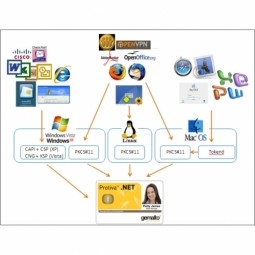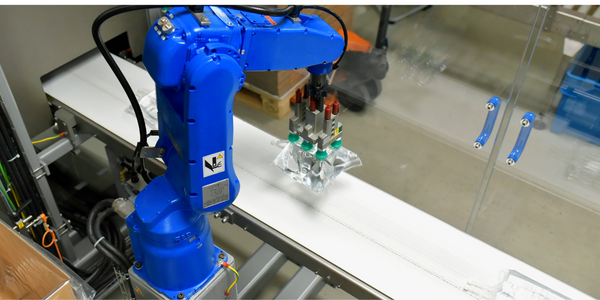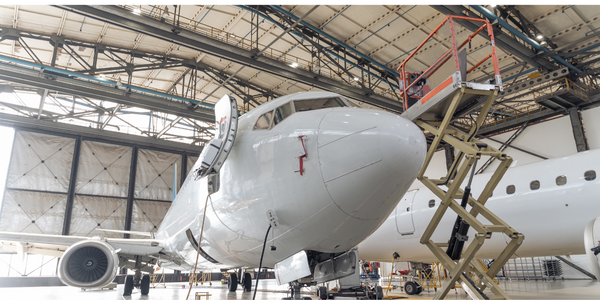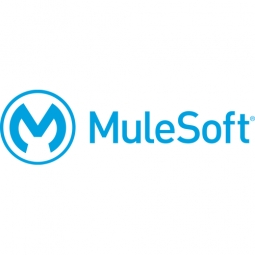公司规模
Large Corporate
地区
- America
国家
- United States
产品
- Mule ESB Enterprise
- ActiveMQ
- Adobe Flex
技术栈
- Mule
- ActiveMQ
- Adobe Flex
实施规模
- Enterprise-wide Deployment
影响指标
- Cost Savings
- Customer Satisfaction
技术
- 应用基础设施与中间件 - API 集成与管理
- 应用基础设施与中间件 - 数据交换与集成
适用行业
- 生命科学
适用功能
- 销售与市场营销
- 商业运营
用例
- 过程控制与优化
- 质量预测分析
服务
- 软件设计与工程服务
- 系统集成
关于客户
The Leukemia & Lymphoma Society (LLS) is the world's largest voluntary health organization dedicated to funding blood cancer research, education, and patient services. The mission of LLS is to cure leukemia, lymphoma, Hodgkin's disease, and myeloma, and improve the quality of life of patients and their families. Since its founding in 1949, LLS has invested more than $600 million for research specifically targeting blood cancers. LLS has been a pioneer of event-oriented fundraising, leveraging the passion of individual fundraisers. Its flagship program, Team in Training (TNT), has grown to become the world's largest endurance sports training program, raising more than $850 million since its founding in 1988. The TNT program allows amateur endurance athletes to help raise funds for LLS. In exchange, the program provides personalized fitness training and sponsored trips to endurance events around the globe, including marathons, triathlons, and century (100-mile) bike rides.
挑战
The Leukemia & Lymphoma Society (LLS) had been using a third-party outsourced application for its Team in Training (TNT) fundraising program. However, as the number of fundraisers increased, the application began to experience frequent outages and performance issues, leading to failed or duplicate donations. The weak integration between the outsourced application and LLS’s internal systems resulted in duplicative functionality and higher maintenance costs. Additionally, the 7% transaction fee and the delayed transfer of funds significantly increased LLS’s fundraising costs. LLS needed to regain control of the infrastructure end-to-end, developing a set of rich user applications and integrating them with the existing back-end systems. The new system needed to be highly reliable, with no messages lost, robust exception strategies, and an active/passive failover architecture to achieve full redundancy.
解决方案
LLS built a series of front-end applications using Adobe Flex, allowing individual participants to register themselves and manage their own fundraising, and providing TNT chapters with tools for administration. The team brought together Mule ESB Enterprise and ActiveMQ at the core, creating a backbone to integrate the front-end applications with a core set of reusable services called Mission360, as well as a legacy VB-based campaign management system called Society Central. Mule's out-of-the-box connectors allow the applications to access the file system and SMTP services for sending email. To ensure reliability, LLS leveraged Mule's built-in component and connector exception strategies. In the case of a component failure, the component exception strategy is configured to retry the message until it succeeds. The messages are also persisted in ActiveMQ via Mule's JMS endpoint to ensure that no messages are lost, even if the ESB shuts down for any reason. If ActiveMQ fails, the connector exception strategy is configured to persist messages in the file system until ActiveMQ comes back online. In addition, all messages are logged for auditing purposes.
运营影响
数量效益

Case Study missing?
Start adding your own!
Register with your work email and create a new case study profile for your business.
相关案例.

Case Study
Corporate Identity Solution Adds Convenience to Beckman Coulter
Beckman Coulter wanted to implement a single factor solution for physical and remote logical access to corporate network. Bechman Coulter's users were carrying smart card badges for doors, but also needed a one-time password token to access to our corporate network when they were not in the office. They wanted to simplify the process.

Case Study
Embracing Business Success in Real Time
· Increase control over growing Big Data to improve business decisions · Manage data for 28,000 biotechnology stockkeeping units in the fields of microbiology, molecular biology, animal cell cultures, plant tissue cultures, and lab ware for laboratory chemicals · Accelerate report generation and analysis with real-time data

Case Study
Flow Robotics: Scaling Up Production and Accelerating Product Development with IoT
Flow Robotics, a Danish manufacturer, developed flowbot™ ONE pipetting robots to alleviate the strain on bioanalysts in life-science laboratories and hospitals across Europe. These robots were designed to automate part of the testing process, speeding up the time it takes to produce results and reducing pressure on staff. However, the company faced challenges in scaling up production and accelerating product development. High workloads and physically challenging conditions have long been an issue for laboratory professionals. Flow Robotics estimates that around half of medical lab technicians carry out the same arm movements for at least a quarter of their working day. The American Society for Clinical Pathology reported that 85% of laboratory professionals feel burnt out; 36% struggle with inadequate staffing; and 32% face a heavy workload and pressure to complete all testing on time.
Case Study
Material Intelligence at Ethicon: Sustaining Medical Device Manufacturability and Improving Patient Care
Ethicon, a world-class medical devices company, faced several challenges in its operations. The rapid selection of manufacturing materials compliant in global markets was critical to assure patients, practitioners, and purchasing organizations of the biocompatibility of their medical devices. Ensuring supply chain continuity and minimizing risks of obsolescence for medical devices due to regulatory changes were also crucial in meeting Ethicon’s ongoing commitment to maintaining patient care. Furthermore, the engineers at Ethicon were developing the next generation of medical devices and needed to access historical material data to accelerate new product development. The process of centralizing and digitalizing its materials information was a significant challenge that Ethicon needed to overcome.

Case Study
Revolutionizing Aerospace Industry with 3D Printing: A 63% Lighter Titanium Part
GE Aviation, a renowned name in the aerospace industry, recognized the potential of 3D printing technology in transforming the sector. The primary challenge was to reduce the weight of the aerospace parts, which would directly impact the fuel costs. A lighter airplane would mean lower fuel consumption, leading to cost savings and a smaller carbon footprint. However, achieving this weight reduction without compromising the strength and functionality of the parts was a significant challenge. Traditional manufacturing methods were not able to provide the desired weight reduction while maintaining the required stiffness and strength of the parts. The challenge was to find a solution that could create strong, light, and functional aerospace parts.
Case Study
IWT's Transformation: Customizing with Efficiency in IoT
IWT, a company specializing in the design, manufacture, and installation of washing systems for the life sciences and pharmaceutical industries, faced a significant challenge in managing its wide product portfolio. The company manufactures 45 different models, 60% of which are customized to some degree. This high level of customization, combined with limited production quantities, necessitated a controlled process for managing the release of engineering changes. The goal was to achieve efficiency, reduce process time, and better coordinate production throughout the organization. The need for strict compliance in heavily regulated industries further complicated the situation. IWT's existing PLM journey with Dassault Systèmes’ SOLIDWORKS for 3D CAD and Enovia for managing CAD data and Bills of Materials (BOMs) was proving inadequate. The system had limited part classification, no workflow, and no tool to ensure data consistency. The management of non-CAD documents was also a challenge, with information often difficult to find and access.







